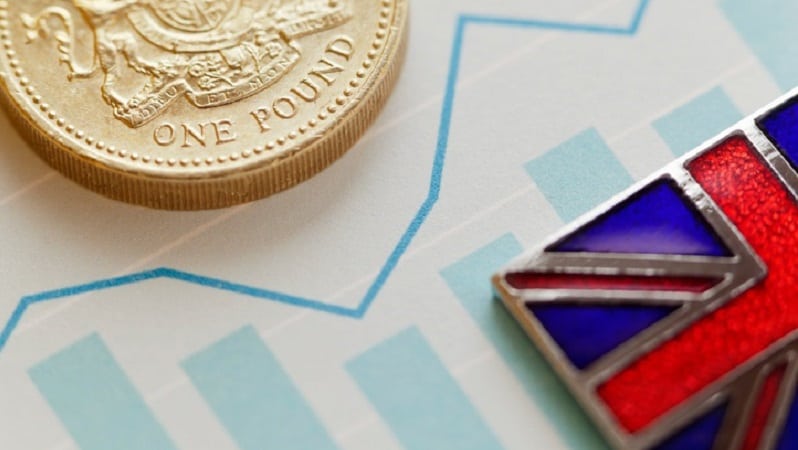The UK’s record contraction in GDP amid the coronavirus lockdown has attracted scorn from investors, although most remain positive on UK assets due to fiscal and monetary support.
The UK economy contracted a record 20.4% in Q2 2020, officially pushing it into recession after the 2.1% contraction in Q1. It regained some lost ground in June growing 8.7%.
In light of the latest figures, EY Item Club forecasts 2020 GDP to contract 11.5% rising to 6.5% growth in 2021. It said the UK might not regain its Q4 2019 size until 2024.
Federated Hermes senior economic adviser Neil Williams said Covid-19 had sliced away 17 years of economic growth. “This, plus the ending of furloughing subsidies in October and a move towards Brexit by year-end, will make that ‘V-shape’ recovery the Bank of England and others crave a big ask – so yet another fiscal jump start and more QE may be needed in the autumn,” Williams said.
From the start of August, furlough in the UK will no longer cover national insurance and pension contributions, although it will continue to pay 80% of an employee’s salary up to £2,500 a month. Government payments will be reduced in September and October before the scheme is dropped.
‘It shows just how badly the UK has handled the crisis’
The Share Centre investment research analyst Helal Miah said the contraction in UK GDP is about twice as bad as falls in the US and major European countries.
The US economy slumped 9.5% in Q2 2020, while the eurozone fell 12.1% over the period.
“In assessing against other countries it shows just how badly the UK has handled the crisis, both medically and economically,” Miah said. “We were late to introduce lockdowns for the sake of the economy, but by not taking action early enough we did far more damage to the economy without saving lives we could have.”
The dominance of services and hospitality could also explain why the UK economy performed poorly, he added.
Gam investment director Charles Hepworth noted the “bleak” figures compared unfavourably with countries beyond the US and the eurozone.
“The UK now has the unenviable moniker of being the worst performer in the G7 group of countries and perhaps this correlates with the handling of the coronavirus outbreak,” Hepworth said.
Investors still positive on UK assets
Sterling would remain an unloved asset for the time being, Hepworth added.
While Miah offered a scathing assessment of the UK’s economic performance, his outlook for UK assets was more positive.
“The Bank of England and other central banks stand ready to take further action and this will naturally mean that monetary policy will be easy, supporting our view that the stock market is all-round the still best place for capital growth and income,” he said.
UBS Global Wealth Management economist Dean Turner expected pent-up consumer demand to drive a strong recovery in Q3, before momentum deteriorates alongside the outlook for the labour market.
However, Turner too remained positive on UK assets, stating they looked undervalued and that the GDP figures contained few surprises. “In this environment, we continue to maintain a preference for UK equities relative to other eurozone stocks, and expect sterling to strengthen versus a weaker US dollar over the next 12 months.”










